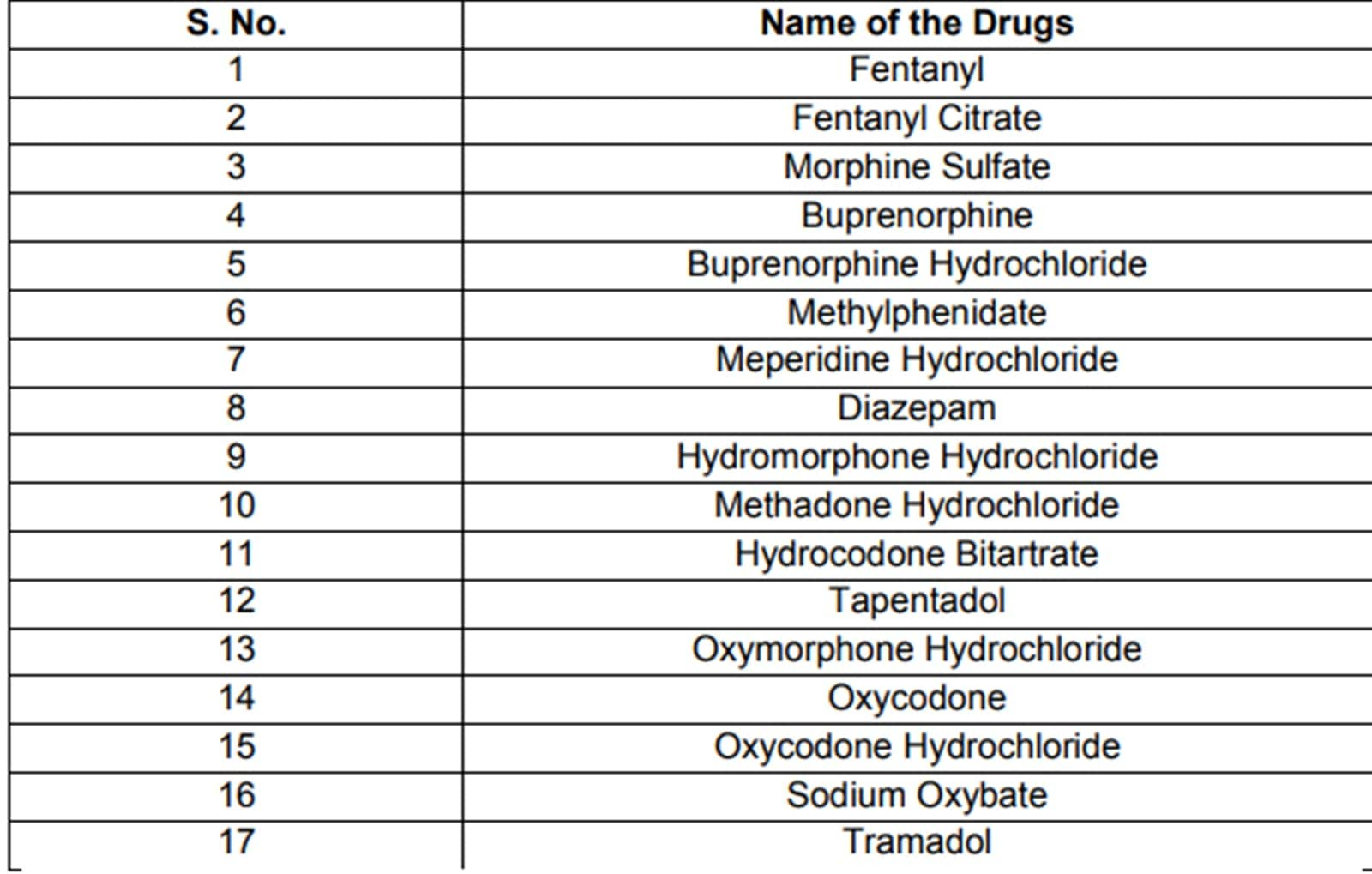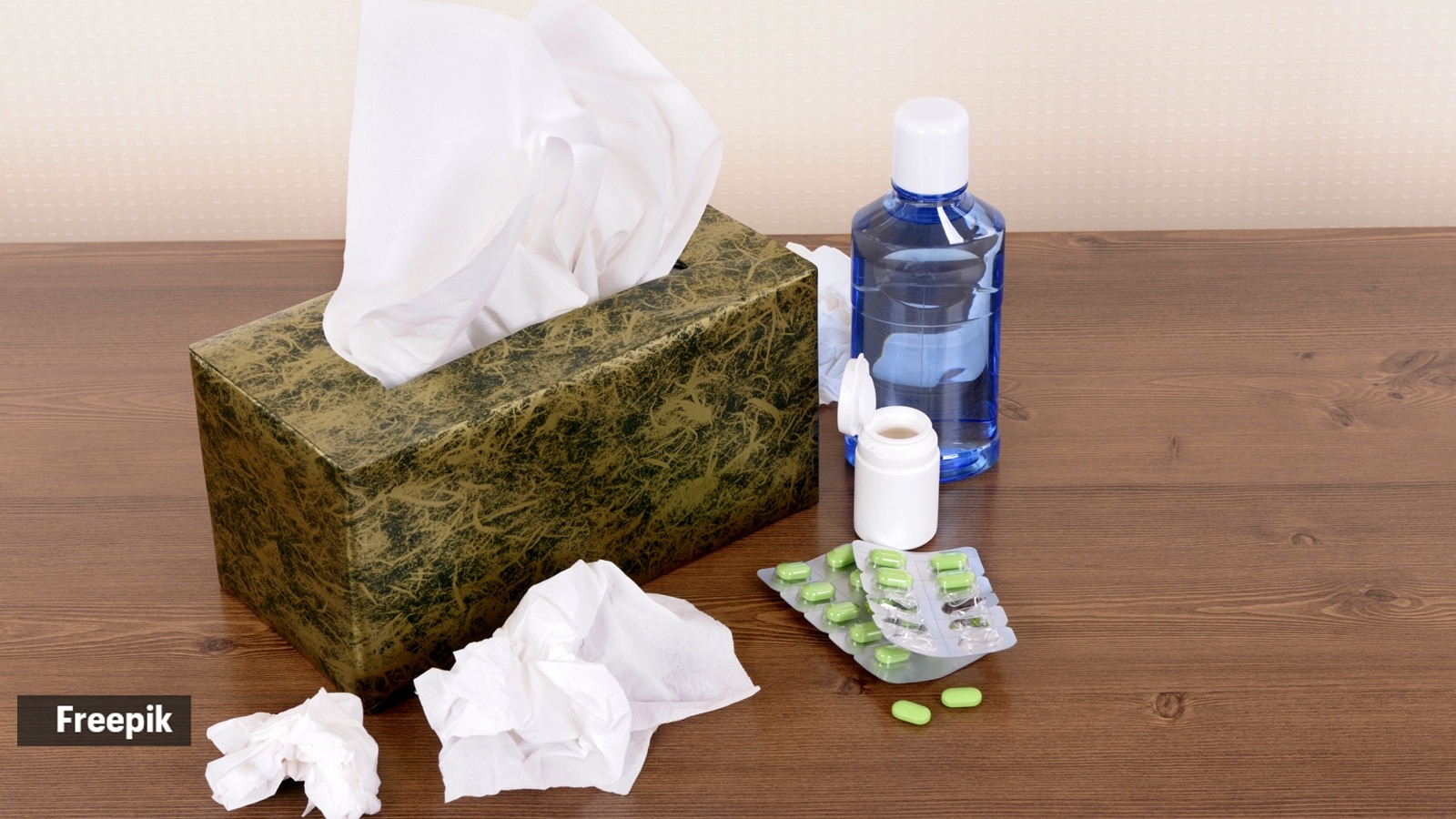Most of us have a common habit of discarding expired medicines in the dustbin. However, according to the Central Drugs Standard Control Organisation’s (CDSCO) latest advisory, flushing certain expired or unused drugs down the toilet should be the norm, rather than throwing them in the dustbin. According to CDSCO, improper disposal of expired, unused drugs may be hazardous to public health, animal health, and the environment. It has also been noted as one of the key factors contributing to the growth of Anti-Microbial Resistance (AMR), as stated in a notification dated May 26, 2025.
In the same notification, it listed a “small number of medicines” that may be especially harmful and, in some cases, fatal if used by someone other than the person for whom the medicine was prescribed. “Expired, unwanted, or unused medicines should be flushed down the sink or toilet to help prevent danger to people and pets in the home.”
 The 17 drugs, which when unused or expired, should be flushed (Photo: CDSCO)
The 17 drugs, which when unused or expired, should be flushed (Photo: CDSCO)Notably, an expired drug refers to a drug which had crossed the expiry date mentioned on the label. Further, unused drugs refer to the medications that have not been used by the individual for whom they were prescribed or purchased.
Story continues below this ad
The drug regulator noted that expired drugs may come into contact with scavengers and children if a landfill is insecure. “Pilfering from a stockpile of waste drugs or during sorting may result in expired drugs being diverted to the market for resale and misuse. Most pharmaceuticals past their expiry date become less efficacious, and a few may develop a different adverse drug reaction profile.”
What are the risks if these medicines are thrown away or stored carelessly?
To gain a deeper understanding, we consulted an expert.
Dr Amit Saraf, director of internal medicine at Jupiter Hospital in Thane, called improper disposal “a real danger.” “Some painkillers, anxiety medications, or sedatives can lead to overdose or poisoning if someone takes them by mistake. Over time, improper disposal adds to antimicrobial resistance and environmental pollution. Keeping expired drugs at home also increases the risk of self-medication or misuse,” said Dr Saraf.
Agreeing with CDSCO’s stance, Dr Saraf said that flushing certain high-risk medicines, like opioids and sedatives, prevents accidental consumption or misuse. “If they are thrown in the household trash, children, pets, or waste workers might find them. Some of these drugs can be deadly even in a single dose if taken by someone who shouldn’t,” said Dr Saraf.
Story continues below this ad
 Are you properly disposing medicines? (Photo: Freepik)
Are you properly disposing medicines? (Photo: Freepik)
What is the purpose of this move?
The CDSCO aims to minimise harm to people, animals, and the environment. If these medicines are thrown away improperly, they can end up in landfills, contaminating soil and water. “Some may also be misused if they get into the wrong hands. The guidance on flushing applies to a list of 17 high-risk drugs that are dangerous without medical supervision,” asserted Dr Saraf.
What do doctors think about this advisory?
Doctors generally support the move, especially those in public health and pharmacology. “Safe disposal is part of responsible prescribing. We often instruct patients on how to take medicines, but we seldom explain how to dispose of them. This action raises awareness among healthcare providers and patients about the life cycle of medicines, even after they are no longer used,” said Dr Saraf.
Story continues below this ad
DISCLAIMER: This article is based on information from the public domain and/or the experts we spoke to. Always consult your health practitioner before starting any routine.
























